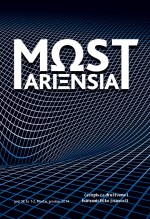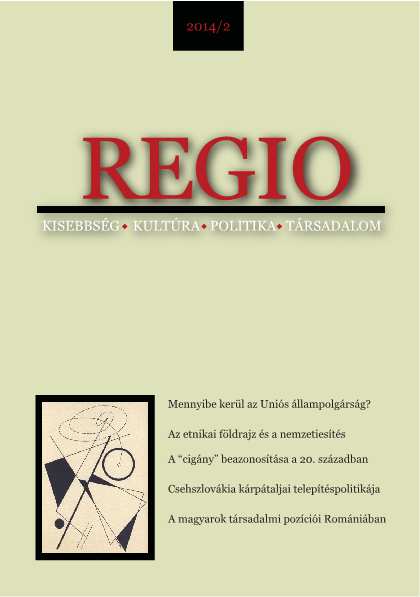
Térfelfogás és retorika
Krasznai Zoltán: Földrajztudomány, oktatás és propaganda. A nemzeti terület reprezentációja a két világháború közötti Magyarországon. Pécs, Publikon kiadó, 2012. 262 oldal.
More...We kindly inform you that, as long as the subject affiliation of our 300.000+ articles is in progress, you might get unsufficient or no results on your third level or second level search. In this case, please broaden your search criteria.

Krasznai Zoltán: Földrajztudomány, oktatás és propaganda. A nemzeti terület reprezentációja a két világháború közötti Magyarországon. Pécs, Publikon kiadó, 2012. 262 oldal.
More...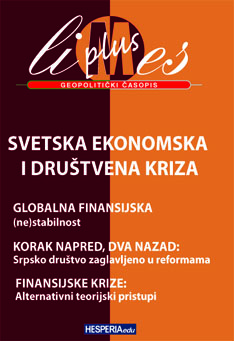
Th e paper tries to map some of the issues that contemporary universities face within the significantly changed coordinates of altered realities of contemporary societies. Deeper understanding and analysis of the specific position of the University and its relationship with the social environment is important because it can provide valuable information about the possible development directions of both society and the universities themselves. At this moment, the quality of their relationship is disturbed. On one side it endangers the survival of the university as we know it, and on the other it abolishes serious social dialogue on development directions and the future of contemporary societies. The most significant reason for such situation is university’s voluntarily self exclusion from that dialog.
More...
Veress Emõd – Kokoly Zsolt: Jogászképzés a Bolyai Tudományegyetemen 1945–1959
More...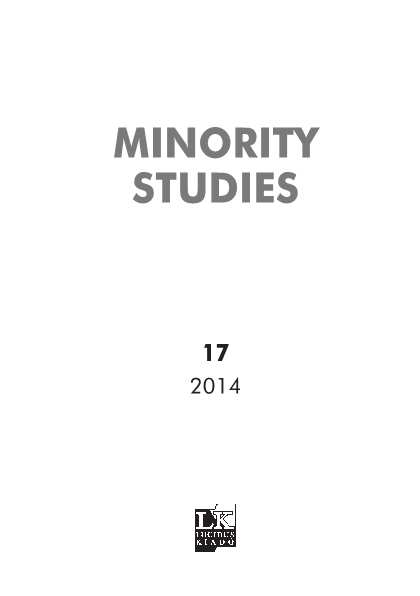
The statement that the youth participating in PhD programs assure the academic replacement of a country or a region most likely requires no further justification. At the same time, statistically speaking, with higher education transformed into mass education, an increasing number of students have appeared on the higher levels of education. That raises the question that participation in PhD programs could be not only about the foundation of an academic career, but also about prolonging the stage of youth (pre-adulthood) by an extended school path. This youth moratorium can be regarded as the antechamber of becoming an adult: although PhD students are already grown-ups with a diploma in higher education, the fulfilment of their professional career is still ahead of them. They are equally affected by the challenges of finding a workplace related to the shaping of their professional identity and establishing the conditions of their existence, which presumably have an impact on their private sphere as well (marital status, willingness to have children, etc.)
More...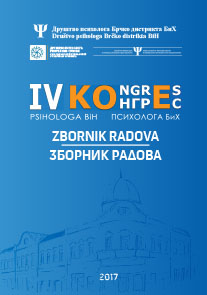
The competence as a construct is consisted of knowledge, skills and abilities to solve the complex tasks through mobilizing psychosocial resources (including skills and attitudes) in certain context. The key competencies are the agreed term for common learning outcomes in education in European context. Their main features are: they are cross-curricular (they are part of all subjects and activities), they are the developmental goals of the whole curriculum and they are complementar (each situation requires more than one competence in order to be solved). In order to prepare the basis for curricular reform in accordance to European requirements, The Agency for preschool, primary and secondary school conducted the research to define the key competencies for BiH and to map their existence in current curricula. One of the main goals of the research was to understand pupil’s perceptions about the importance and existence of specific competencies in educational practice, as well as to identify how they perceive them in particular subject taught in schools. 2875 pupils from primary, secondary general and vocational schools from BiH participated in the research. The instruments for data gathering were constructed based on the predefined indicators of key competencies. The results showed that pupils rank as the most important competencies the ones which are mostly present in the teaching practice; communication competencies in native and foreign languages, mathematic literacy (numeracy), IT literacy and health competence, while the least important ones were self-initiative and entrepreneurial competence and civic competence. The results also showed that the current educational process does not support cross curricular teaching, which is the main prerequisite for positioning the competencies as the developmental goal and main learning outcomes. The research showed that there is a great need for curricular reform in order to align the educational system in Bosnia and Hercegovina with European systems.
More...
The paper considers the influence of the post-Soviet past on modern processes in Ukrainian education. It also contains materials of opinion surveys of education managerial personnel held during the last ten years and analyzes the dynamics of their views on the influence of political factors on personnel appointments in education, etc. The research emphasizes democratization and professional development of the process of appointment of managerial personnel in education, the necessity of applying new economic techniques under the condition of decentralization in educational administration, fundamental changes of the managerial and pedagogical staff, etc.
More...
The paper focuses on the problem issue of competencies and competency approach in education which has nowadays been a dominant trend in Europe and worldwide. Educational policy has appeared as a main advocate of competency approach, while scientists have had quite opposed standpoints in view of it. The fact that certain standards have been established in the form of competences to be achieved by all the pupils and externally evaluated has necessarily led to negligence of developmental and individual characteristics of pupils. A question has arisen as to how not to neglect developmental characteristics of pupils within competency approach, how to address the needs of standards through competencies and respect the principles of individualization. In regard to individualization of student potentials the starting point in the paper refers to notional determinations, pointing to different theoretical approaches and models, and suggesting certain simple ways of (self)evaluation. Empirical part of the paper deals with the research on standpoints of teachers as main factors of individualization of student potentials, aiming at determining the orientation and identifying the variables which might have influence on the orientation of standpoints. The results of the empirical part refer to encouraging and optimistic findings, indicating a positive attitude of research participants and identifying the variables influencing the differences in the orientation of attitudes (working experience of the research subjects and particular segments of upbringing-educational ecology). Concluding remarks appeal for caution and point to the problem issue of transferring responsibility to students, ascribing ability to make judgements decisions to students, and equating independence and self-determination.
More...
The qualitative research has gained more and more terrain in the social domain, especially in education. It has been noticed that when we speak of research, the tendency is to underline the role of the qualitative research, to bring in first plan more qualitative data (tables, numbers, diagrams, figures). The idea is not to discredit the quantitative research, nut to underline that this one finds its well-deserved place in the research field and in qualitative research.
More...
The aim of the research presented in the paper was to establish similarities and differences in the approach to disabled persons, as well as the key elements resulting in medical care model for the stated population, according to the analysis of the National strategies and legislative regulations regarding the persons with invalidity in the countries involved in the research. Theoretical and historical causes still underlying traditional approach models to persons with invalidity are analysed in the paper. The approaches are grounded not only on invalidity as an absolute category, but also on the attempts at a different approach to disabled persons resulting in the development of various paradigms and accordingly derived models. The systems of care for the persons with invalidity in the Republic of Germany, the Czech Republic and the Republic of Slovenia, as EU members, as well as in the Republic of Bosnia and Herzegovina and the Republic of Serbia, as transitional countries, were evaluated according to the qualitative functional data analysis. Comparative analysis was used to compare the forms of care existing in Croatia with the conditions in the stated countries. The analysis has shown that the traditional approach to persons with invalidity based on medical model is still prevailing, in spite of the fact that all the countries had made national documents clearly expressing the need for different reflections on the approach to persons with invalidity.
More...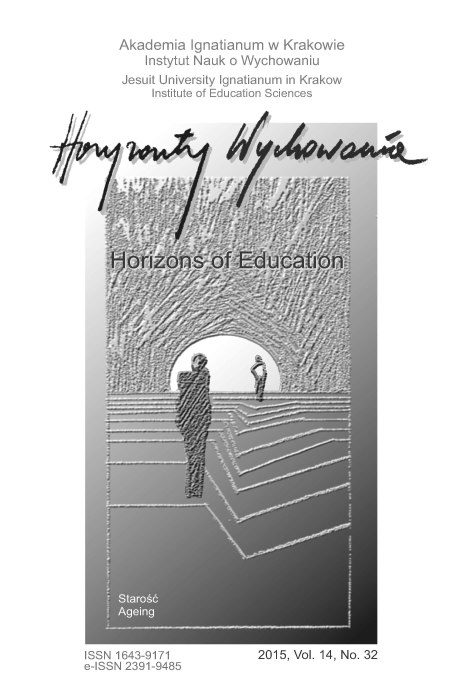
Artykuł dotyczy podporządkowania pedagogiki i polityki oświatowej ideologii "homo sovieticus", która sprowadza je do służebności wobec dwóch ściśle powiązanych z sobą faktów: poddawania procesów edukacyjnych ocenie z punktu widzenia ideologii totalitarnej albo do narzucania w państwie ustrojowo demokratycznym - ideologii partii rządzącej. Wyjaśniam, dlaczego system zarządzania edukacją w Polsce nie zmienił się od czasów totalitarnych, socjalistycznych mimo transformacji politycznej i społecznej. Odsłaniam toksyczny charakter centralizmu szkolnego, który niszczy elastyczność, innowacyjność, suwerenność i profesjonalizm pedagogicznej pracy nauczycieli. Wskazuję zarazem na konieczność radykalnej zmiany w polityce oświatowej państwa oraz modelu kształcenia i wychowywania młodych pokoleń w szkolnictwie publicznym. The article presents the subordination of pedagogy and educational policy to the ideology of "homo sovieticus", which brings them into servitude to two closely interrelated facts: subordinating educational process to the totalitarian ideology and forcing the ideology of the ruling (dominating) party onto a constitutionally democratic country. The author explains why the system of management of Polish education has not changed since the totalitarian and socialism times despite the political and social transformation which took place in Poland and reveals the toxic nature of the school centralism, which destroys flexibility, innovation, independence and professionalism of teachers. Furthermore, he points at the need for a radical change in the educational policy of Poland, in the model of education and in ways of upbringing young generations in Polish state schools.
More...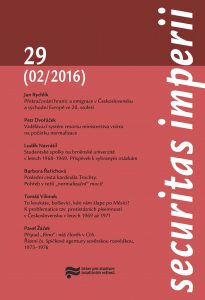
In the early 1970s, the Ministry’s education, as well as the entire Ministry of the Interior, had to deal with a number of fundamental changes related to the federalization of the state (from 1 January 1969) and the emergence of the republic’s ministries, a large number of forced departures of “reformists” as a result of the defeat of the Prague Spring, as well as voluntary retirement of the staff and members of the National Security Corps (SNB). At that time, numerous legislative changes also led to the reorganization of the existing education system from the mid-1960s and the creation of a new system with a university‑like school as the highest grade – the University of the National Security Corps. Although management mechanisms were created and the Ministry’s regulations governing education were completed, the system failed to fulfill the tasks of the communist party resolutions concerning cadre work and education, as shown by statistics. This was associated with a low level of education of the newly recruited members of the National Security Corps. In the mid-1970s, however, the foundations of an education system were laid that was able to produce ideologically “solid” graduates with narrow security specialization for the future, for the Interior Ministry’s own needs.
More...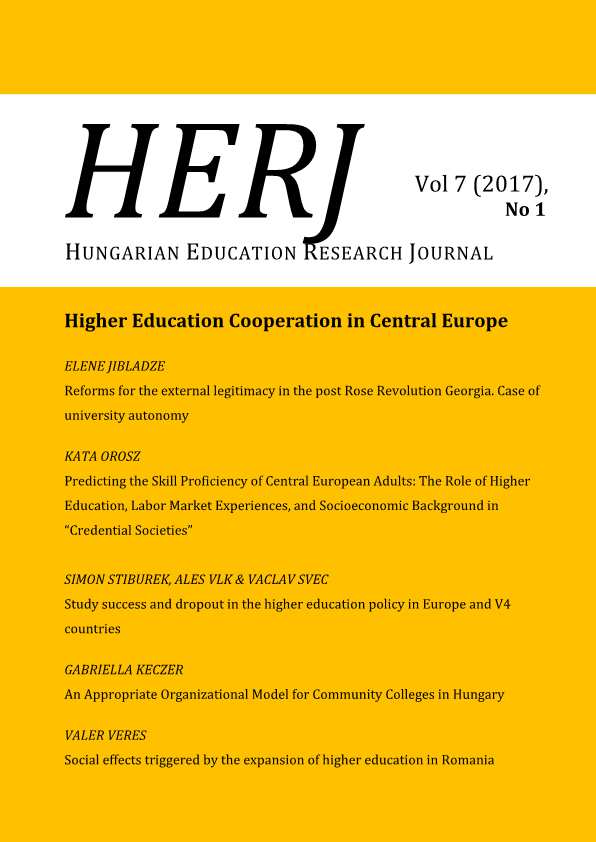
This article investigates higher education system-change in a region undergoing post-Soviet transition, specifically – in post-Rose Revolution Georgia. It considers the Bologna Process-inspired reforms that represent instances of transnational policy and institutional transfer into national contexts. On the example of university autonomy, the article argues that in Georgia, Bologna-inspired reforms were introduced in order to gain legitimacy in the global higher education arena. However, these reforms have produced a symbolic system-change and have created decoupled institutions. The findings of the article bare policy relevance to those post-Soviet transition countries that have embarked or plan to embark on transformative changes in their national (higher) education systems.
More...
In Europe, including the Visegrad region (Hungary, Poland, Czech Republic and Slovakia), the issue of student success and dropout is increasing in attention among policy makers on both the national and international level. This paper provides an overview of the major policy perspectives on the issue as well as the main categories of measures adopted to stimulate student success. The Visegrad countries show substantial similarities in their policy attitudes, yet they retain differences, in particular how much importance they assign to the agenda. The regional trends are illustrated by the case study of the Czech Republic: although the goal of reducing dropout rates has been included in policy documents since 2000, so far only few measures have been implemented and the dropout rates continue to grow.
More...
The beginning of the 21st century has brought a paradigm change in higher education. The technological improvements in research and knowledge discovery and the strengthening discourse of open access have introduced new methods and tools of teaching and learning. The free online availability of teaching materials and the easy access to research results and data facilitate the development of research and student collaborative networks on a global level. Through the cooperation and works of such scientific networks, the core principles of open science - transparency, reusability, and collaboration - can be realised. A gradual shift towards the open scientific discourse can be detected in Hungary, as well. A growing number of higher education institutions adopt open access guidelines in their research and publication policies. The strengthening national open science advocacy and the EU funding requirements, requesting more transparent and freely accessible research processes, encourage a more standardized national vision on research and teaching methodologies. Collaborations with research communities and higher education administrations could ensure a more solid position for us in the global scientific circulation.
More...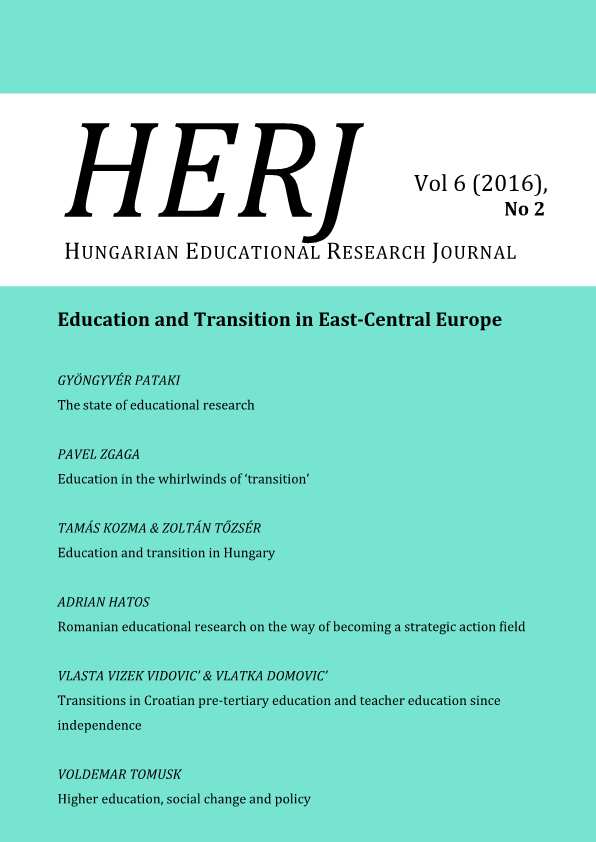
This article addresses the role of educational researchers in the process of the so-called transition in Slovenia. The concept of transition is critically reflected; we believe that understanding of transition processes needs to be installed in a broader historical, social and cultural context. This context is briefly outlined. Processes that have gradually led to a transition are tracked through some key public debates about educational issues that arose in the 1970s and 1980s. They contributed to preparing the ground for radical changes that occurred at the turn of the 1980s into the 1990s. In the final part, the question about the role of researchers in the post-transitional society is addressed. With analysis of the relationship between political discourse and academic discourse we claim that relativisation of the role of research and researchers is progressing in modern times.
More...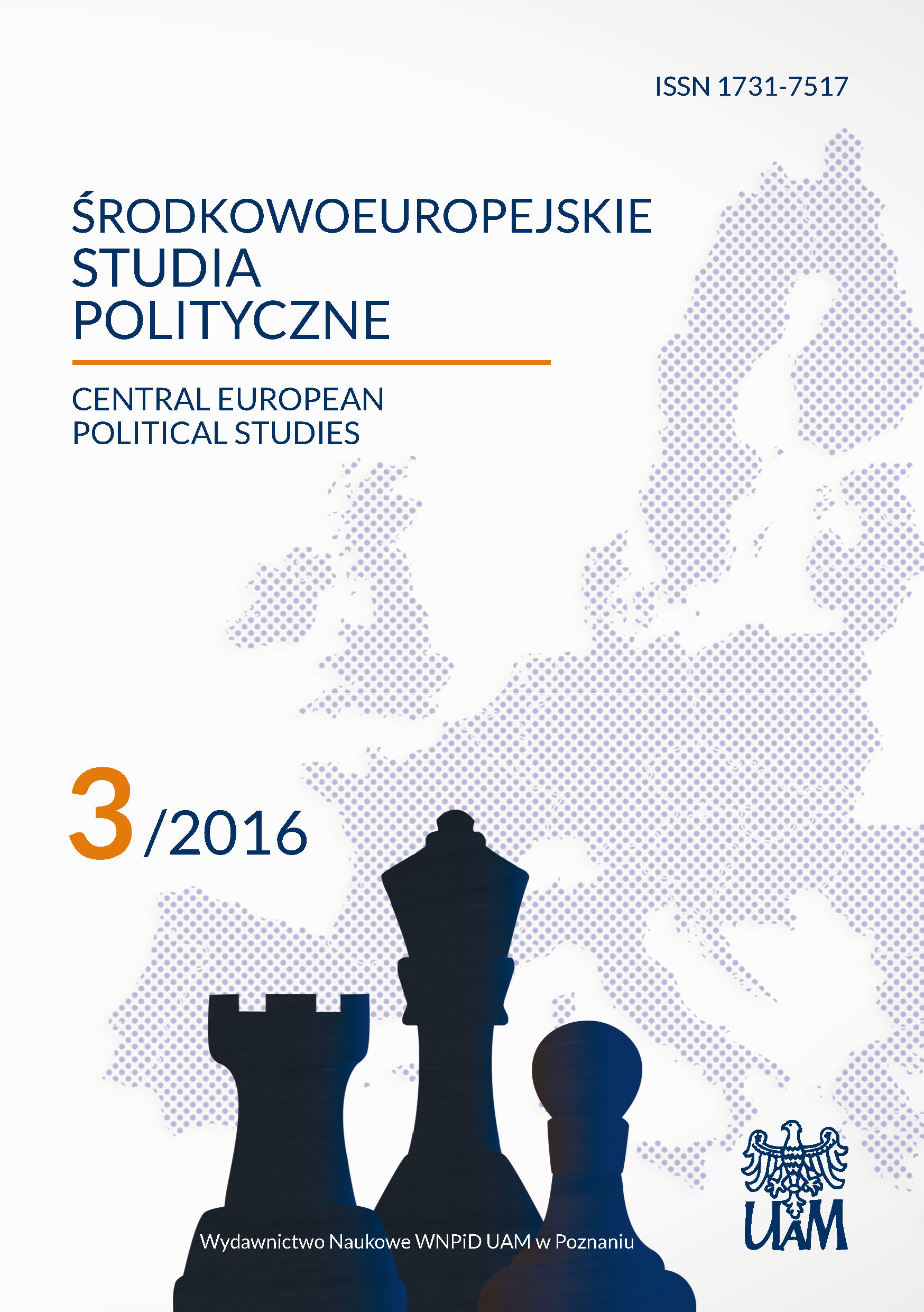
The paper aims to depict State Catholic Church relations within the framework of the discourse of the „Gość Niedzielny” weekly. Since the relations between the State and the Church are very complex the paper focuses on one, controversial topic, namely public education (religious education and sexual education in particular). Research findings suggest that the journalists of „Gość Niedzielny” expected the State to fulfill the demands proposed by them, as they represent the Catholic majority.
More...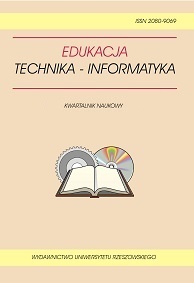
The illusory illiteracy phenomenon discussed in the article can be referred only to the so-called General education, general education of adults.
More...
In the article there have been presented conditions for successful change and change management implementation strategy. On top of that there have been given typical reasons for lack of change acceptance by the associates and their resistance to it. As a conclusion author points reader in direction of actions to be made before implementing changes in the field of education. Article is thought-provoking on necessity to implement all the changes and what would be their potential consequences.
More...
In the article the problem of burnout regarding academic teachers employed by Lublin University of Technology was mentioned. Presented research shows, that nearly 70% of the questioned teachers declares that the problem has appeared, 20% that it happens quite often, and 5% – extremely often. Range of existing and intensity of burnout are varied, and differed considering their workplace, science title, seniority and other educational responsibilities. Gathered results show that the further research about the burnout of the academic teachers at the universities and how to fight it, because of it's not yet confirmed influence on the level of the teaching process.
More...